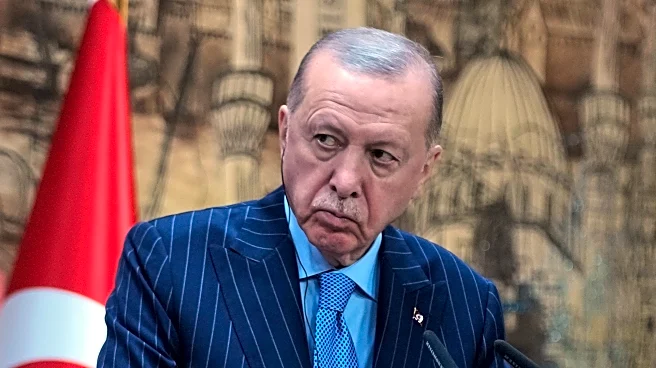What's Happening?
President Donald Trump has commuted the prison sentence of former New York GOP Representative George Santos, who was serving time for fraud-related charges. Santos, who had been convicted of wire fraud,
aggravated identity theft, and campaign finance violations, was released from the Federal Correctional Institution in Fairton, New Jersey, less than three months into his 87-month sentence. The commutation does not erase Santos' conviction, meaning he remains a convicted felon. The decision has reignited discussions about the limits of presidential clemency and accountability for public officials convicted of serious crimes. Santos, who was expelled from the House of Representatives, expressed gratitude towards President Trump and several Republican lawmakers who supported his case.
Why It's Important?
The commutation of George Santos' sentence by President Trump highlights the ongoing debate over the use of presidential clemency powers, particularly in cases involving political figures. This action underscores Trump's willingness to intervene in high-profile criminal cases, especially those involving his political allies. The decision has drawn mixed reactions, with some praising the move as a correction of judicial overreach, while others criticize it as a misuse of presidential power. The case also raises questions about the ethical standards and accountability mechanisms for public officials, potentially influencing future discussions on congressional oversight and reforms.
What's Next?
Santos' release is expected to fuel further debate on the boundaries of presidential clemency and its implications for justice and political accountability. Legal analysts and political observers anticipate discussions on potential reforms to enhance ethics safeguards for members of Congress. Lawmakers from both parties may push for a closer examination of the use of clemency as a political tool and its impact on public trust in the justice system. The case could also prompt calls for legislative changes to address the treatment of convicted politicians and the role of presidential intervention in such cases.












